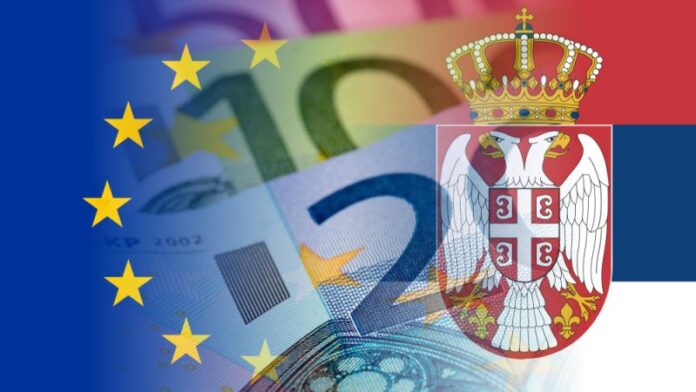The announcement by ten EU states that they are officially in recession could certainly impact Serbia, as the country is closely tied to the EU, even though there is slightly less trade this year compared to the previous one, Serbian President Aleksandar Vučić said on Wednesday, according to Euractiv.
“Although slightly less than three years ago, the EU remains our most significant partner. It is a market for our products, due to their numerous factories and those from the Asian continent. Hence, the ultimate market and destination for these goods is Western Europe. We feel the effects whenever they experience lower consumption and recession,” he said.
He mentioned that Serbia expects decent growth this year, comparable to the highest growth rates within the European Union.
“We are narrowing the development gap between us and them, but the situation is not simple, especially after the recent conflicts in Israel. Of course, you cannot choose the times in which you live, and you always partially influence the circumstances you go through.”
The International Monetary Fund (IMF) has released new forecasts for the global economy, indicating a continued slowdown. Still, the risk of a severe recession and mass unemployment has diminished.
The picture of economic recovery is regionally uneven, with developed economies expecting the U.S. to grow by 2.1% this year, an improvement of 0.3% compared to previous IMF expectations.
In Europe, the outlook is less optimistic due to its exposure to the conflict in Ukraine, higher energy prices, and reduced demand for its exports caused by the slowdown in China.
After a 3.3% growth in 2022, production in the Eurozone is expected to slow to 0.7% this year and 1.2% next year, a reduction of 0.2% and 0.3% compared to July’s IMF projections. The largest economy in the European Union, Germany, is likely to end this year with a recession of 0.5%, followed by an expected growth of 0.9% next year.
Additional risks to the global economy include deepening crises in the Chinese real estate market and increasing geopolitical tensions, which could limit the flow of goods and contribute to new price spikes.
Regarding Serbia, the IMF expects the GDP to grow by 2% in 2023, with a projected growth of 3% for the following year.


